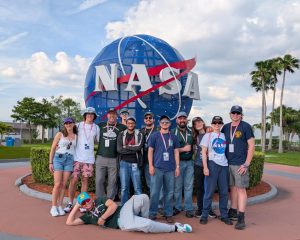COD Biology Professor Organizes Spring Stem Cell Registry Drive
February 4, 2019
In January 2000, biology professor Julie Gibbs suspected she was sick with the flu. Yet after a visit to an immediate care center, her primary care doctor called her with devastating news—Gibbs had leukemia.
Gibbs was immediately admitted into Loyola Medical Center, where she began treatment. When doctors told Gibbs she needed a stem cell transplant, she was lucky enough to find a match in her brother. However, for an overwhelming majority of those needing stem cell transplants, there is no such luck.
According to the Montreal Children’s Hospital, only about 30% of patients needing healthy stem cells find a match in their siblings, leaving 70% of patients to depend on strangers for their livelihood. The realization that not everyone is as fortunate as her is what encouraged Gibbs to partner with Be the Match to set up a blood stem cell registry drive at College of DuPage.
Be The Match is the largest and most diverse stem cell registry in the world, working with health centers across the globe to help find matches for those in need of stem cell donations. Because patients are most likely to match with a donor of their same ethnic background, COD is a perfect place to find donors because of the school’s large ethnic diversity.
The registry drive, to take place April 16th in the Health and Science Center’s atrium and the 17th in the Student Service Center behind Starbucks, will consist of a simple online questionnaire. Be the Match will then mail a cheek-swab kit to each participant’s house, where they can perform the simple test in the comfort of their home. There is no cost to register as a stem cell donor, and in the rare event a person is contacted to be a donor—the likelihood of which is around 3%–, there is no cost to donate.
“I think a lot of students are willing to be organ donors, and they put that on their driver’s license– but most of the time to be an organ donor you have to be dead,” says Gibbs. “For students it would be exciting to think, ‘Hey, I could save somebody’s life and go on with mine.’”


















